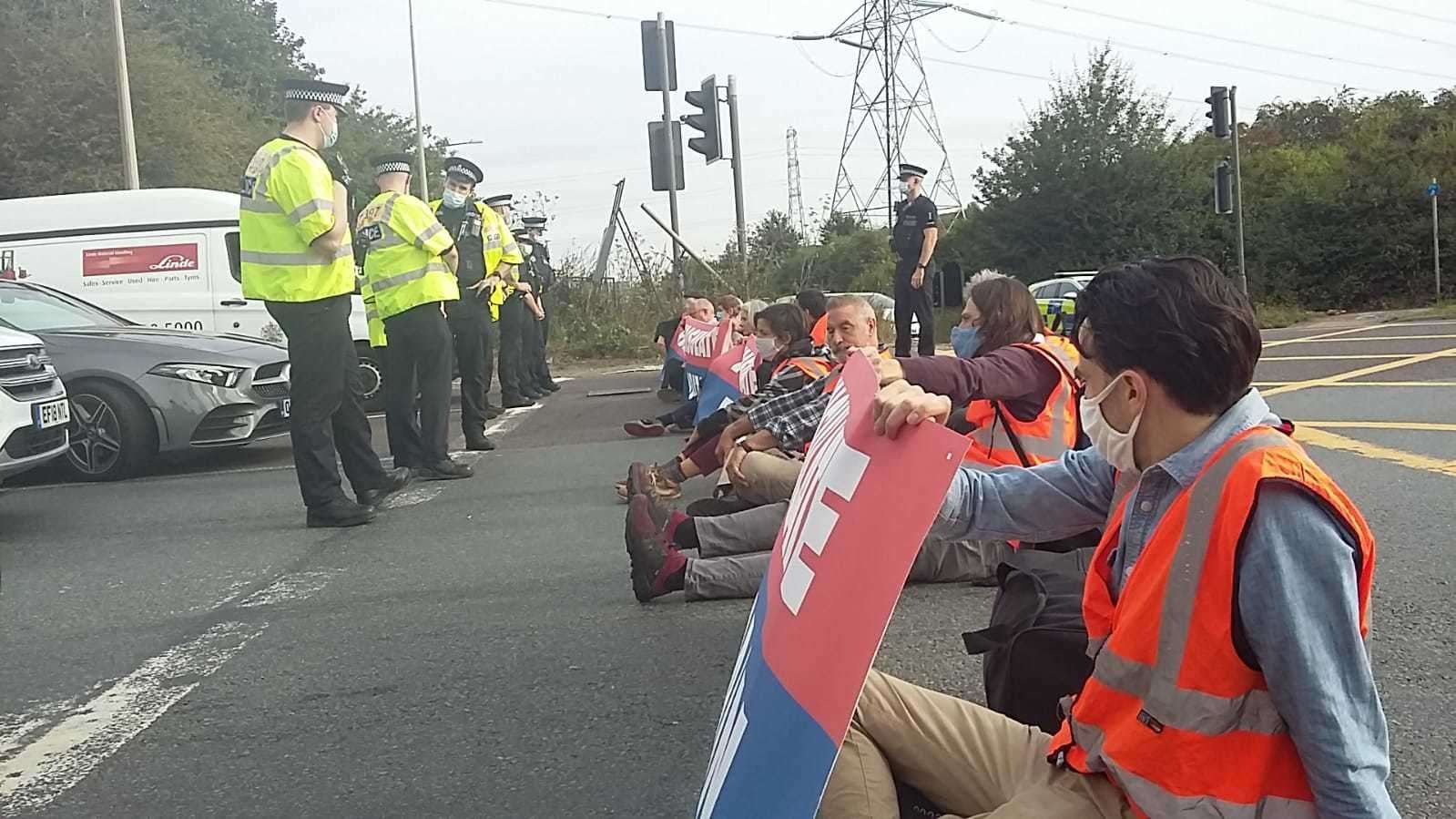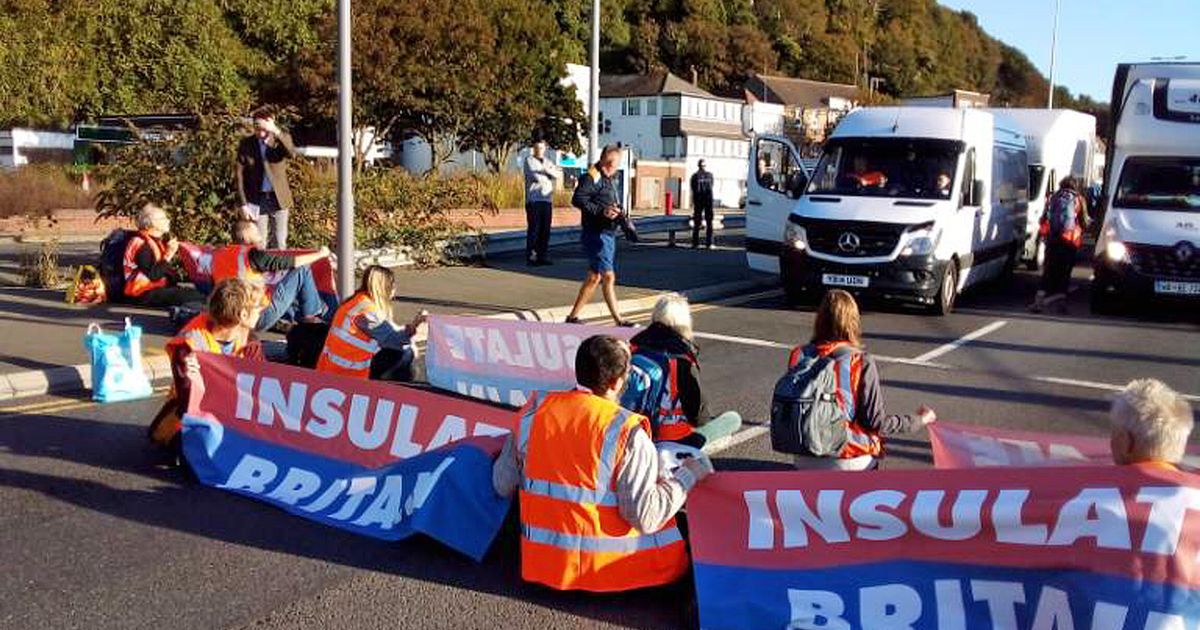Insulate Britain is an activist group started by members involved in the global environmental movement Extinction Rebellion. The group has presented events on and offline since the summer of 2021.
The purpose of the Insulate Britain group is to secure housing insulation funded by the government throughout the UK in all social housing by 2025. Furthermore, they demand a retrofit to insulate all other homes by 2030 that were not insulated adequately when constructed.
Insulate Britain's Protests
In September 2021, Insulate Britain protesters blocked five junctions on the M25 motorway, causing traffic to come to a standstill. The protesters followed this up with a further five protests between the 15th and 23rd of September.
During the M25 demonstrations, activists superglued themselves to motorway exits or to live lanes of the motorway, making it impossible for traffic to pass. The protestors also emptied paint tins onto sections of the tarmac.
On September the 24th, the group barricaded Dover Port, causing large queues and delays on the approaching A2 and A20 roads. Although police cleared the protesters off the roads in a matter of hours, two protesters caused a further hour of delays as they sat on top of a tanker with their hands superglued to the vehicle. After the Dover incident, the police arrested 39 people.
Widespread Agreement
According to The Guardian newspaper, the group's demands correspond with climate scientists' research and policy experts who agree that home insulation must be an environmental priority, which furthermore saves on energy bills and is beneficial to the economy. Several MPs agree with the protesters and their actions, including Green Party MP Caroline Lucas and House of Lords members Jenny Jones and Natalie Bennett.
However, British Prime Minister Boris Johnson, Home Secretary Priti Patel, and Transport Secretary Grant Shapps condemned the demonstrators. The group's tactics have been severely criticised, with politicians calling the protesters selfish and suggesting they were putting others in danger as well as themselves.
While its methods are controversial, and there would have been much contempt and frustration among motorists caught up in the M25 and Dover delays, there is widespread agreement among the public with the group's demands.
Insulate Britain wants to highlight political inactivity and force the UK government into taking action. It is doubtful that people will be against insulating British homes because they disagree with the protester's tactics. An estimated 4 million households in the UK are inadequately heated due to a lack of money. Insulating properties is crucial for lowering emissions, saving families money, and improving air pollution and, therefore, public health.
Expert's Opinions
In May 2021, the Construction Leadership Council introduced a plan to help consumers save more than £400 annually on utility bills each year, improving the health and financial situation of those in fuel poverty.
The proposal claimed that renovating the UK's draughty housing stock to low-carbon standards would cost £5bn over four years. However, apart from the vital environmental benefits, the mission would create 100,000 jobs, cut energy bills, increase tax revenue, and bring in tens of billions in financial benefits.
The chief executive of the Federation of Master Builders, Brian Berry, said that all that was missing to execute the plan was the long-term agreement and political commitment.
Despite the increasing calls to action, specialists say little has changed in the UK in the past decade. The UK's draughty housing is among the worst in Europe and an estimated 10,000 people a year die from inadequate heating. Millions more struggle with physical and mental health disorders caused by living in cold, damp conditions.
Jan Rosenow, the European director of the clean energy think tank, the Regulatory Assistance Project, said other countries, including Germany and France, have longstanding programmes in place to support retrofitting and improving home insulation.
He claims, "It works in other countries which have well funded and longstanding programmes … it just hasn't happened here because it has not been a high priority for policymakers."
So, while Insulate Britain, as an activist group, may well not be well-liked, their methods have been successful in getting the importance of home insulation in the news and higher up on the government's agenda, where it should be.







